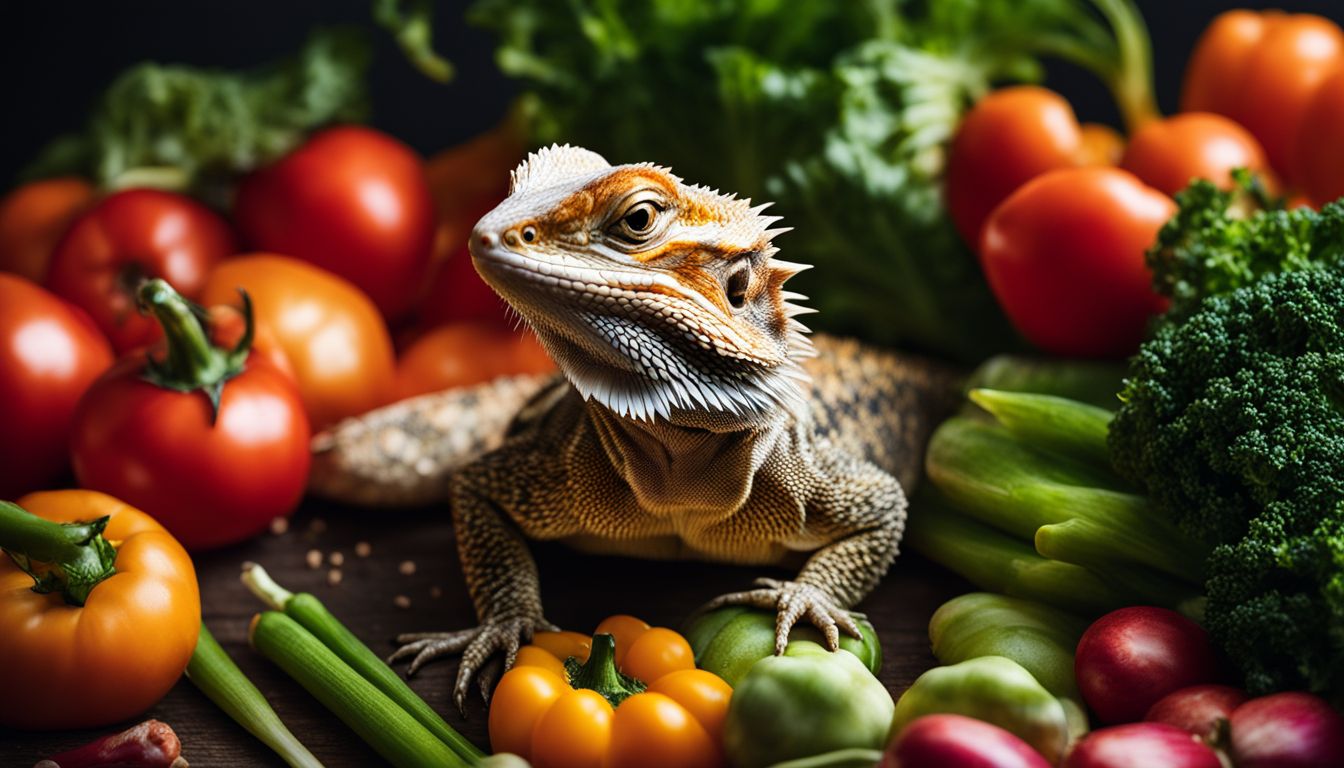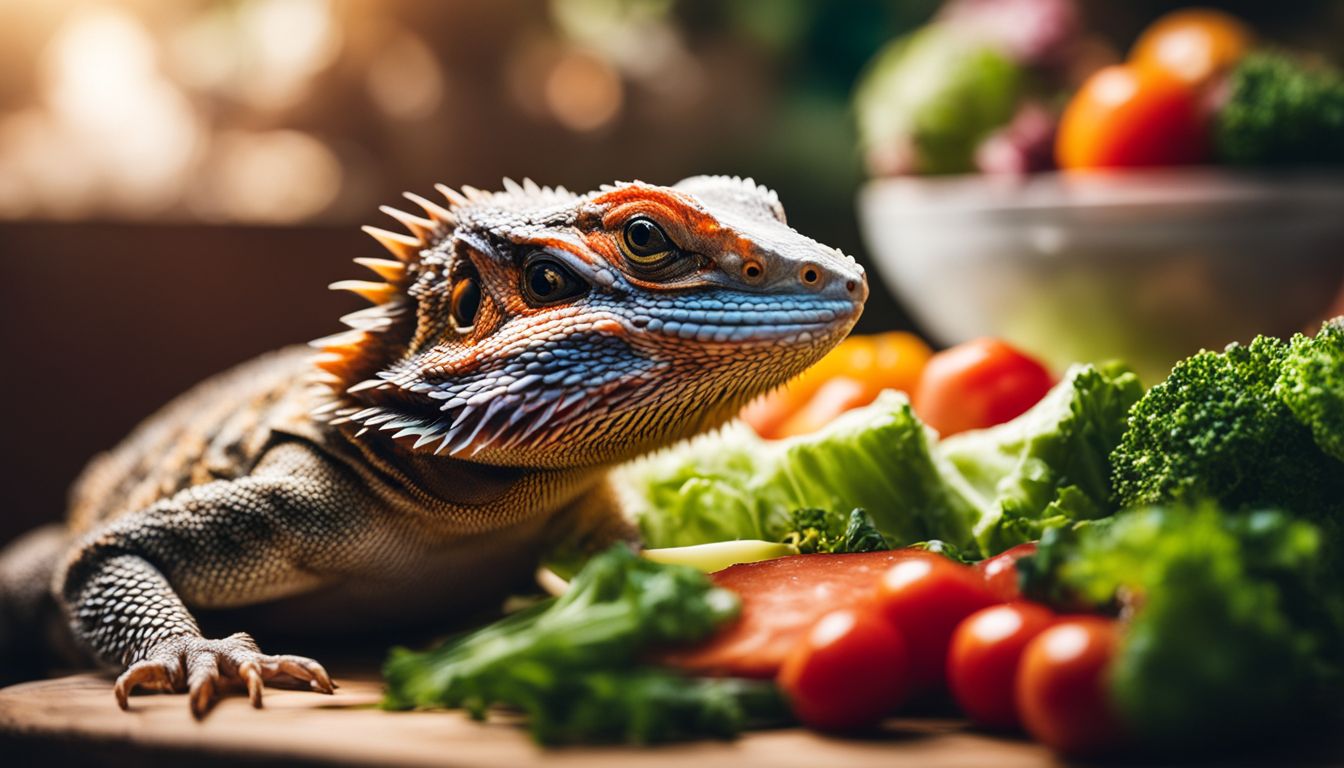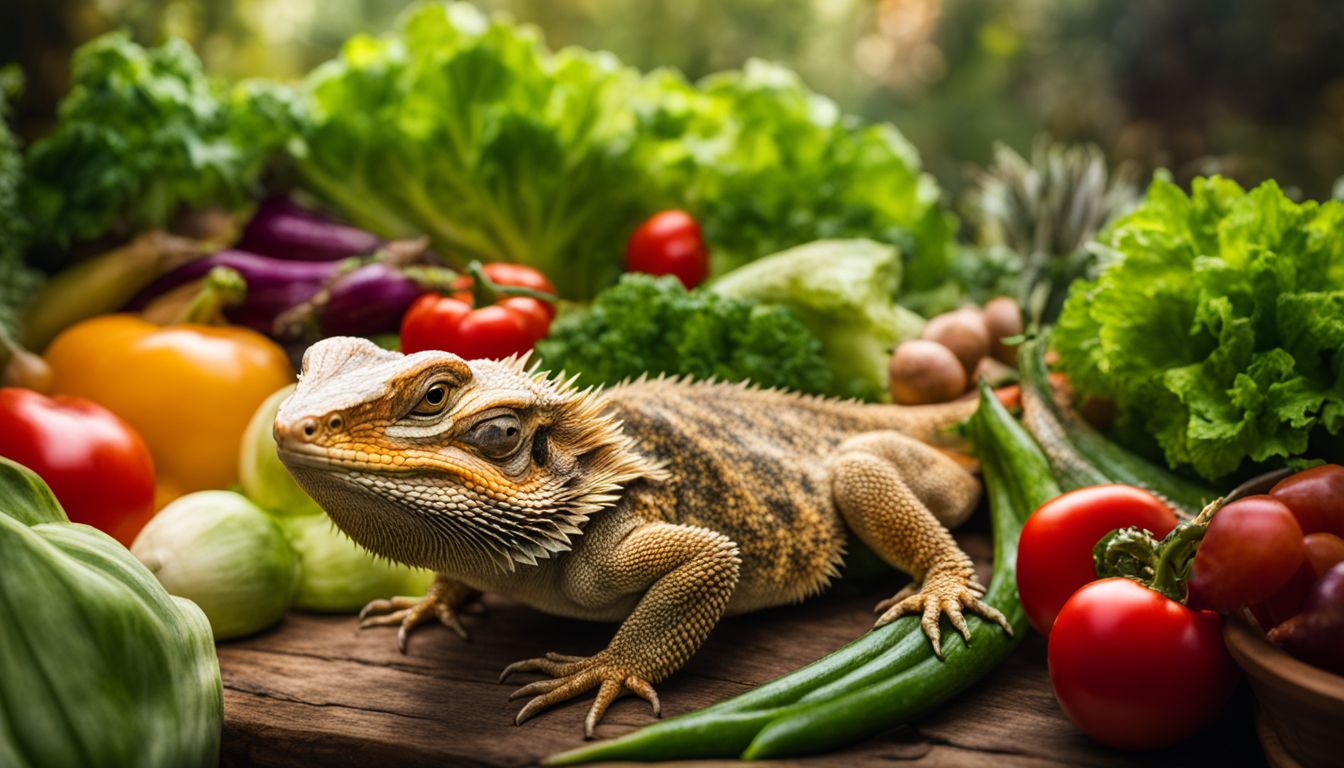Many pet owners wonder if they can share their snacks with their bearded dragons, specifically ham. It turns out, ham is not a good choice for these reptiles. This article will explore the reasons why and offer healthier alternatives for your pet’s diet.
Keep reading to learn how to keep your bearded dragon happy and healthy.
Reasons Bearded Dragons Shouldn’t Eat Ham

Bearded dragons shouldn’t eat ham because it has high sodium content, which can be harmful to their health. Additionally, ham lacks essential nutrients that are vital for a bearded dragon’s diet.
High Sodium Content
Ham packs a punch with its high sodium levels, far beyond what bearded dragons can handle safely. This surge in salt content wreaks havoc, leading to severe dehydration and digestive issues.
Their tiny bodies aren’t built to process such amounts of salt, making ham more harmful than beneficial.
Offering ham as an occasional treat might seem harmless but sticking to low-sodium options is crucial. Even then, moderation is key to prevent any health problems from cropping up.
Excessive consumption turns this potential treat into a risk not worth taking for your scaly friend’s well-being.
Lack of Essential Nutrients
Ham lacks the essential vitamins and minerals that bearded dragons need to thrive. For young dragons, especially, getting enough calcium is critical for their growing bones. However, ham falls short in providing this vital nutrient.
Instead of supporting bone health, feeding ham could lead to severe calcium deficiency.
This deficiency doesn’t just affect growth; it also puts your dragon at risk for metabolic bone disease—a serious condition marked by weak bones. Reptile nutrition isn’t just about filling their bellies; it’s about balancing nutrients like the calcium-to-phosphorus ratio crucial for preventing dietary insufficiency and ensuring proper protein processing and nutrient absorption.
Without these essentials from their meals, bearded dragons can suffer from nutritional deficiencies that impact their overall well-being.
Risks of Feeding Ham to Bearded Dragons

Feeding ham to bearded dragons can lead to digestive problems, as their bodies aren’t designed to process high levels of sodium. The lack of essential nutrients in ham can also contribute to dehydration and overall health issues for these reptiles.
Digestive Problems
Ham can cause serious digestive problems for bearded dragons. Their bodies aren’t built to handle the high fat and cholesterol found in processed meats. This mismatch can lead to unwanted health issues, like diarrhea, which is a clear sign of digestive distress.
Also, certain ingredients in ham might not sit well with some bearded dragons, making it hard for them to digest their food properly.
Dealing with these digestive issues isn’t just unpleasant for your pet; it can impact their overall health and happiness. Ignoring their dietary requirements risks upsetting the nutritional balance they need to thrive.
It’s always best to consult a veterinarian if you’re unsure about what’s safe for your reptile friend’s diet, ensuring their digestive health stays on track without any hiccups from unsuitable protein sources like ham.
Dehydration
Feeding ham to bearded dragons can lead to dehydration, a condition where the body lacks enough water and essential fluids. Dehydration in bearded dragons can result in reduced water intake, affecting their hydration levels.
It is crucial to monitor your pet for signs of dehydration, such as sunken eyes, wrinkled skin, and decreased energy levels. Providing clean water and ensuring proper hydration is essential for maintaining your bearded dragon’s overall health and well-being.
High sodium content in ham can also contribute to dehydration by increasing the need for water intake while simultaneously hindering kidney function. Be attentive to any changes in your pet’s behavior or appearance that may indicate dehydration, and promptly take measures to address this issue before it escalates into more significant health concerns.
Other Foods to Avoid Feeding Your Bearded Dragon
- Iceberg lettuce should be avoided due to its low nutritional value and potential to cause digestive issues.
- Raw beans are not safe for bearded dragons as they contain toxins that can be harmful.
- Ladybugs and fireflies should not be fed to your bearded dragon because they can be toxic.
- Mushrooms and garlic are not suitable for your pet as they can have adverse effects on their health.
- Limes should be avoided as they can cause digestive problems and negatively impact their overall well-being.
Conclusion
In conclusion, ham is not suitable for bearded dragons due to its high sodium content and lack of essential nutrients. Feeding ham to these reptiles can lead to digestive problems and dehydration.
It’s important to avoid highly processed meats like ham when planning a healthy diet for bearded dragons. Instead, prioritize feeding them with meat options that are healthier and lower in fat content.
Remember, their well-being depends on the right food choices.
For more information on what to feed your bearded dragon, check out our guide on whether bearded dragons can eat peanut butter.
FAQs
1. Can bearded dragons eat ham?
Bearded dragons should not eat ham as it is high in fat and salt, which can be harmful to their health.
2. Is it safe to feed my bearded dragon with ham occasionally?
No, it is not recommended to feed your bearded dragon ham even occasionally as it can lead to digestive issues and other health problems.
3. What are the potential risks of feeding ham to a bearded dragon?
Feeding ham to a bearded dragon can cause obesity, heart problems, and digestive issues due to its high fat and salt content.
4. Can small amounts of cooked or unseasoned ham harm a bearded dragon?
Yes, even small amounts of cooked or unseasoned ham can harm a bearded dragon due to its high fat and salt content.
5. Are there any suitable alternatives for feeding my pet reptile instead of ham?
Yes, you can consider feeding your pet reptile with insects like crickets, mealworms, or vegetables such as collard greens and squash for a balanced diet.




